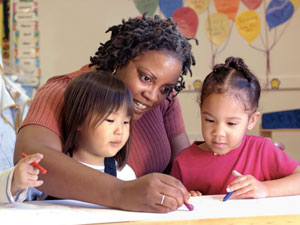Student Assignment
Page Navigation
- Student Registration
- 2025-26 Special Assignment Requests (SAR)
- PCS User ID & Password
- Student Reservation System
- Zoned Schools
- New Student Registration
- Foreign Exchange Student Info
- Update Student Contact Information and Clinic Card
- Online Student Forms
- List of Schools
- Map of Schools
- Key Dates
- Enrollment Forms
- Back To School Guide
- VPK
- PreK ESE
- ESE Registration
- Virtual Schools
- Home Education
- Student Assignment Policies & Procedures
- District Application Programs
- Water Safety
PreK ESE
-
 The PreK Exceptional Student Education (ESE) Program offers a variety of models for children ages three through five who have been identified by an Individualized Education Plan (IEP) team as eligible to receive ESE services.
The PreK Exceptional Student Education (ESE) Program offers a variety of models for children ages three through five who have been identified by an Individualized Education Plan (IEP) team as eligible to receive ESE services. Program Models
PreK Blended 3s (PreK3)PreK3 serves typically developing three-year-old students and ESE students. The goal of PreK3 is to support the growth and development of all students in an inclusive environment. This model is staffed with a certified PreK ESE Teacher and a Medical-Behavioral Associate (MBA).Blended Voluntary PreKindergarten (BVPK)BVPK serves typically developing four-year-old students and ESE students. The goal of BVPK is to better prepare all students for kindergarten in an inclusive environment. This model is staffed with a certified ESE Teacher and a General Education VPK Instructor/Child Development Associate (CDA).
Supported Varying Exceptionalities (SVE)
This program is designed for students who have moderate to severe impairments in development of cognitive, language, motor, and independent functioning. Students identified as SVE require extensive support in daily activities. Classroom activities emphasize independent functioning and staff provides direct guidance and assistance as needed to teach toileting, grooming, and hygiene skills. Focus is on the development of functional communication and basic concepts. This model is staffed with a certified PreK ESE Teacher and two MBAs.
PreK Intensive Sensory/Communication Support Classes
This program serves students who are identified as needing supports to address pervasive delays in communication, social, behavioral, and functional self-care skills. The program addresses the students' sensory needs with emphasis on various sensory stimuli and also for structure and routine. There is an emphasis on visual supports, schedules, and routines. Focus is on direct teaching of social interactions, imitation of role models, and guided practice. This model is staffed with a certified PreK ESE Teacher and two MBAs.
Center-Based Programs
These programs are located at Nina Harris ESE Center and Paul B. Stephens ESE Center. These programs serve students who are identified as exhibiting moderate to severe/profound delays. Many students in these programs exhibit severe neurological and/or medical difficulties and often require the support of a nursing staff. Emphasis is on the development of functional life skills. This model is staffed with a certified PreK ESE Teacher and two MBAs.
Deaf or Hard of Hearing (DHH)
This program serves children whose hearing impairment is such that they have difficulty learning speech and language through typical programs. The curriculum is designed to develop language and communication through total communication methods (spoken and sign language). This program also serves hearing impaired children who have enough residual hearing to benefit from a curriculum designed to develop language and communication through oral/aural communication (spoken). This program is staffed with a certified DHH/ESE Teacher and one MBA.
Itinerant Speech
This program serves students whose parents choose to take them to school-based programs to receive services in speech therapy.ContactFor additional information, please call 727-793-2717- x 2354.





